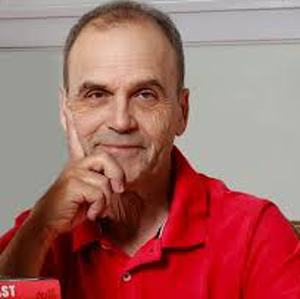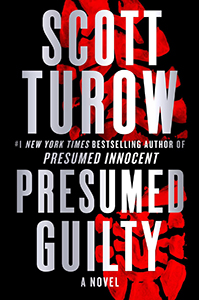Interview with Scott Turow 4


Scott Turow
author of "Presumed Guilty"

Michael Carter
Co-Host
Scott Turow, author of "Presumed Guilty"
Scott Turow's Website
Scott Turow was born in Chicago in 1949. He graduated with high honors from Amherst College in 1970, receiving a fellowship to Stanford University Creative Writing Center which he attended from 1970 to 1972. From 1972 to 1975 Turow taught creative writing at Stanford. In 1975, he entered Harvard Law School, graduating with honors in 1978. From 1978 to 1986, he was an Assistant United States Attorney in Chicago, serving as lead prosecutor in several high-visibility federal trials investigating corruption in the Illinois judiciary. In 1995, in a major pro bono legal effort he won a reversal in the murder conviction of a man who had spent 11 years in prison, many of them on death row, for a crime another man confessed to.
‘Scott Turow is the author of many bestselling works of fiction, including Testimony, Identical, Innocent, Presumed Innocent, and The Burden of Proof, and two nonfiction books, including One L, about his experience as a law student. His books have been translated into more than forty languages, sold more than thirty million copies worldwide, and have been adapted into movies and television projects. He has frequently contributed essays and op-ed pieces to publications such as the New York Times, Washington Post, Vanity Fair, The New Yorker, and The Atlantic.
New from the author of Presumed Innocent, the #1 bestseller that redefined the legal thriller and is the basis for Apple TV+’s most-watched drama series ever. Rusty is a retired judge attempting a third act in life with a loving soon-to-be wife, Bea, with whom he shares both a restful home on an idyllic lake in the rural Midwest and a plaintive hope that this marriage will be his best, and his last. But the peace that’s taken Rusty so long to find evaporates when Bea’s young adult son, Aaron, living under their supervision while on probation for drug possession, disappears. If Aaron doesn’t return soon, he will be sent back to jail. Aaron eventually turns up with a vague story about a camping trip with his troubled girlfriend, Mae, that ended in a fight and a long hitchhike home. Days later, when she still hasn’t returned, suspicion falls on Aaron, and when Mae is subsequently discovered dead, Aaron is arrested and set for trial on charges of first-degree murder. Faced with few choices and even fewer hopes, Bea begs Rusty to return to court one last time, to defend her son and to save their last best hope for happiness. For Rusty, the question is not whether to defend Aaron, or whether the boy is in fact innocent—it’s whether the system to which he has devoted his life can ever provide true justice for those who are presumed guilty.